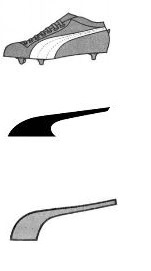Trademark agency Abcor - protect your trademark
Contact
If you have questions or want to know more about our services?Please mail: info@abcor-ip.com
Please call: 31 (0)71 576 3116
Dennis deemed that Heinz took off with his idea. At launch, a competition was held for a new brand-name. 95 suggestions were received, Metchup being one of the entries. At the end of the campaign, Heinz published an overview on their website with all suggested names depicted on sample bottles. Perry claims this is an infringement.
The court disagreed. Heinz sells the product under the name MAYOCHUP and not under the name METCHUP. Additionally, Heinz never used the name METCHUP in commercial context to promote its product.
But there is another aspect that plays an important role: if a trademark owner invokes a trademark that is subject to obligation of use, he must actually use it. The sale of 34 bottles in about 9 years does not, however, constitute use. For that reason, the Perry brand was cancelled on account of non-use. Registration is a good start to claim Trademark rights, but if you want to enforce them, keep in mind that in most countries one has to use a trademark normally. Otherwise you’ll end up with nothing.
The sale of 34 bottles in about 9 years does not, however, constitute use. For that reason, the Perry brand was cancelled on account of non-use. Registration is a good start to claim Trademark rights, but if you want to enforce them, keep in mind that in most countries one has to use a trademark normally. Otherwise you’ll end up with nothing.
trademarks
